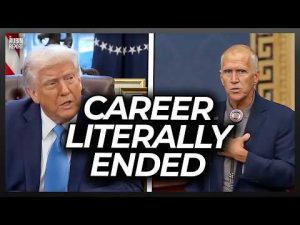In recent discussions, a strange narrative has begun to emerge among some Democratic lawmakers, suggesting that Elon Musk has taken on a presidential role of sorts, with Donald Trump reduced to a mere vice president or head of communications. This bizarre claim seems more like a satirical piece than serious political discourse. But it reflects a deeper issue within our political discourse: the disconnect between established facts and the narratives being shaped by the media elite. It raises questions about authority, media trustworthiness, and who truly represents the common man in America.
It’s no secret that trust in government institutions and mainstream media has plummeted in recent years. Many Americans feel that traditional news outlets, like ABC News, The Washington Post, and The New York Times, have lost touch with reality, favoring sensationalism over fact-checking. Citizens are increasingly skeptical of the narratives promoted by these organizations. They recognize that what is often branded as “news” can morph into a manipulation of public perception, driven by political agendas.
This dynamic reflects a growing desire for authenticity in reporting. People want news sources that represent their values and priorities, not those that shape realities to fit a political narrative. More than ever, the common man is asking: who speaks for us? Independent voices are emerging as a counter to the mainstream narrative, attempting to provide perspectives that resonate with ordinary Americans. It’s not just about who won an election or what policies are being pushed in Washington; it’s about who truly cares about the struggles of everyday people.
In this particular instance, turning Elon Musk into some kind of political figure—president or otherwise—distracts from the real issues at hand. Instead of engaging in sensible conversations about policy and governance, some lawmakers prefer melodrama over meaningful discourse. This is emblematic of a broader problem in which sensational claims overshadow critical national discussions regarding law enforcement, personal responsibility, and economic opportunity.
Americans need leaders who are focused on solutions, not distractions. Emphasizing traditional values, accountability, and a robust respect for law and order should be central to our discussions. The political elite may laugh as they construct these narratives, but the common man sees through the smoke and mirrors. As distrust in institutions grows, it will be those who advocate for genuine reform and connection with the populace who ultimately prevail. The message is crystal clear: the future of America relies on a commitment to truth, responsibility, and a clear rejection of the absurdity that has infiltrated our political landscape.







